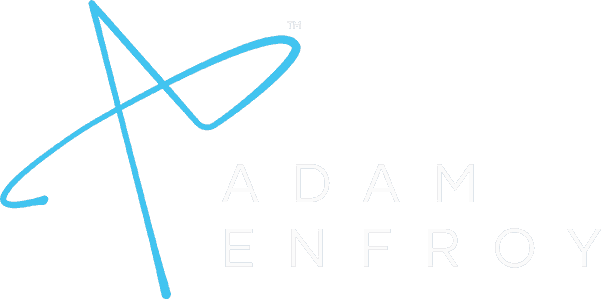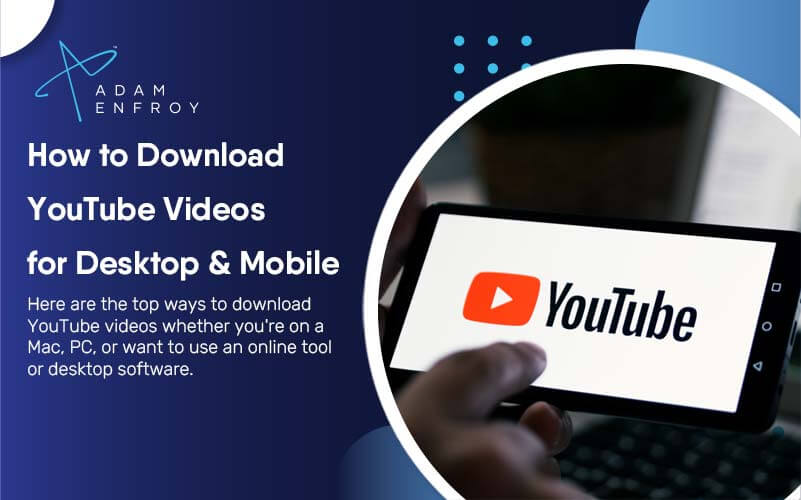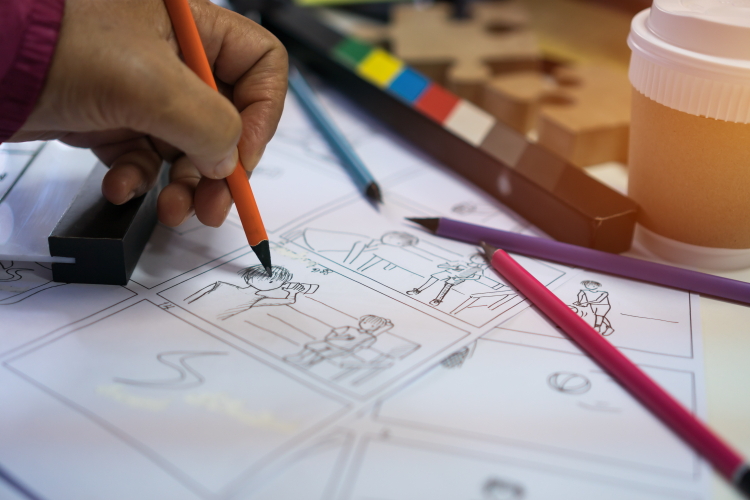15 Podcast Studio Room and Background Design Ideas to Steal
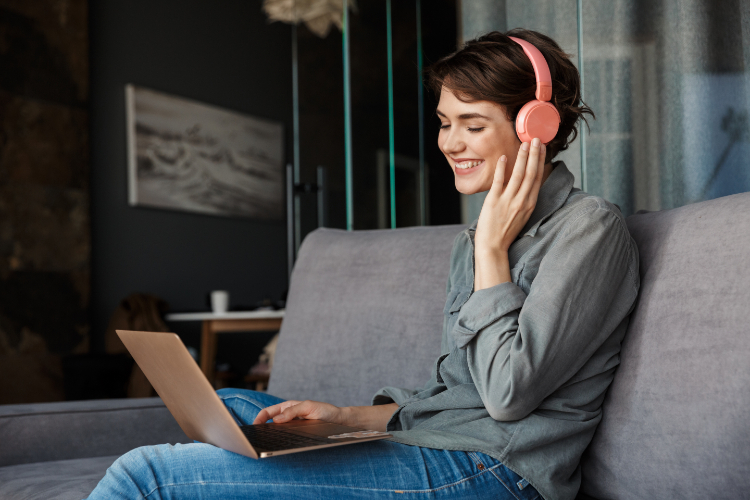
Many podcast studios are just four walls and a mic.
But what if your studio becomes much more than that? What if just sitting in your studio made you feel great?
Do you think that would help you produce better content?
It sure would!
With that in mind, the podcast room ideas I share in this article will help take your setup from basic to brilliant.
Before I get started, don’t forget to check out the podcast starter kit for the latest essential equipment. And if you want to make money from your podcast, discover 7 ways to monetize your podcast. For hosting solutions, here’s a list of the best podcast hosting platforms for 2024.
- What Are The Best Podcast Room Ideas?
- 1. Customized Themed Backdrops
- 2. Virtual Podcast Room
- 3. Creative Lighting Solutions
- 4. Personalized Branded Backgrounds
- 5. AI-Enhanced Backgrounds
- 6. Cozy Home Studio Setups
- 7. Professional Office Backdrops
- 8. Minimalistic and Clean Designs
- 9. Artistic and Creative Spaces
- 10. High-Tech and Futuristic Looks
- 11. Nature-Inspired Settings
- 12. Bookcase and Library Backgrounds
- 13. Colorful and Vibrant Designs
- 14. Soundproof and Acoustic Treatments
- 15. Multi-Functional and Flexible Spaces
- Conclusion
What Are The Best Podcast Room Ideas?
Here are the best podcast studio design ideas.
1. Customized Themed Backdrops
Creating the perfect podcast room involves functional and aesthetic considerations.
And what’s better for this than a customized themed backdrop?
Whether you opt for:
- a nature-inspired backdrop with lush greenery and natural light or
- an urban theme featuring industrial elements like brick walls and metal finishes
…your choice can significantly impact the overall vibe of your podcast setup.
Minimalistic environments often offer a clean and distraction-free zone, ideal for professional podcast setups.
On the other hand, motivational quotes on the walls can inspire both you and your listeners.
Incorporating personal memorabilia can make your podcast studio feel more intimate and relatable.
Overall, this adds a unique touch that sets your podcast apart.
2. Virtual Podcast Room
Imagine a podcast studio setup where animations and visual effects are seamlessly integrated.
Professional podcast studios often employ these features to create a more engaging and immersive experience—and now, you can, too!
An innovative podcast studio design idea is integrating real-time social media feeds into your background.
This allows you to display live comments from your podcast-hosting platform.
The result?
A boost in audience interaction while ensuring your podcast room feels alive and responsive.
3. Creative Lighting Solutions
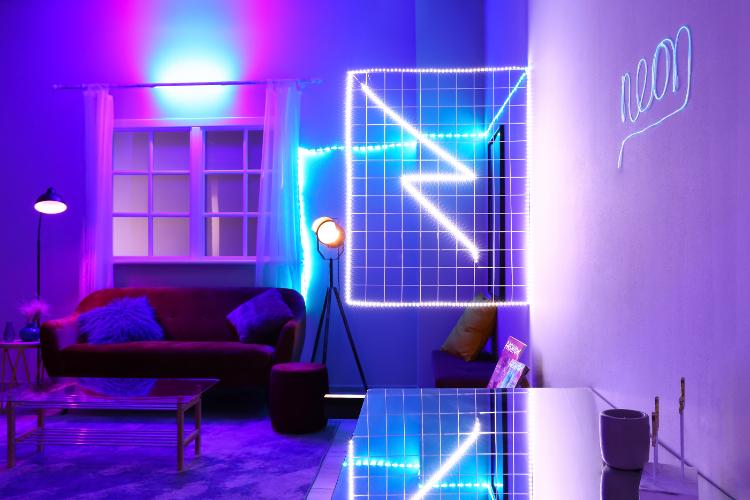
Creative lighting solutions have a significant impact on both audio quality and visual appeal.
This is even more important if you’re producing a video podcast.
Proper lighting enhances the studio space, sets the mood, and highlights key elements.
It also transforms the podcasting space into an engaging environment.
You can experiment with color-changing lights to reflect different moods or segments of your podcast.
The right experimentation also adds a dynamic flair that keeps your audience visually invested.
Incorporating practical lights such as desk lamps or string lights contributes to a cozy atmosphere.
It also minimizes background noise distractions by creating a comfortable setting that encourages natural conversation.
4. Personalized Branded Backgrounds
Strategically integrating your logo, brand colors, and other elements into your backdrop helps create a cohesive visual identity.
Over time, this resonates with viewers who start associating your brand with the value you offer.
Not only does a signature backdrop provide immediate brand recognition.
Updating your background seasonally (or for special events) can keep your content fresh and engaging.
This approach allows for flexibility in showcasing new podcast or audio equipment setups.
5. AI-Enhanced Backgrounds
AI has revolutionized the podcasting world and has made it easier to have the right background customization.
Imagine utilizing advanced AI algorithms to simulate environments that perfectly match your podcast episode topics.
For instance, AI can create a serene aquatic backdrop if you’re discussing the ocean’s depths.
A futuristic theme could be enhanced with AI-generated art and animations.
Such a theme adds a subtle yet impactful futuristic touch.
This seamless integration of AI ensures that decorative elements are tailored to your show’s theme.
If you’re going for an AI-enhanced background, consider that dark colors can be used in moderation to add depth.
Just the right amount will create an optimal environment for recording – without overwhelming the overall design.
6. Cozy Home Studio Setups
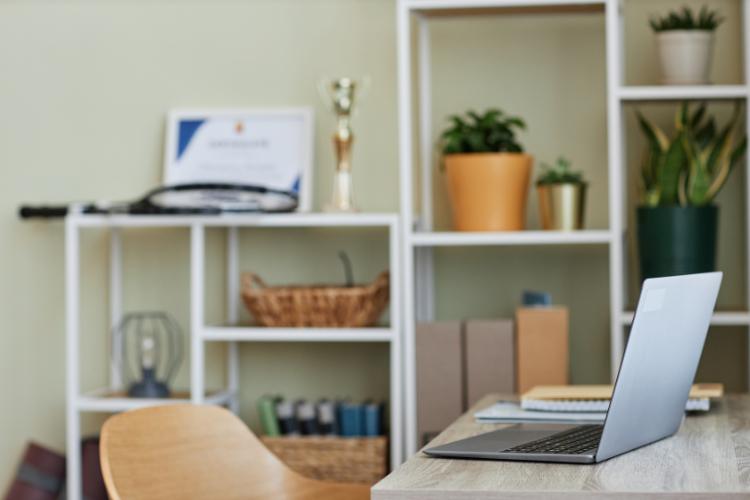
The use of plush furniture plays a crucial role in this situation.
It provides physical comfort and a visually soft and inviting environment.
Plants create a calming atmosphere while enhancing the visual appeal.
Personal items infuse the space with individuality and a sense of belonging.
Think of special photographs or favorite books.
You could even add a coffee or tea station.
This becomes more than just a convenience as it adds warmth and character.
The result? Having a studio that feels homely.
7. Professional Office Backdrops
Imagine incorporating sleek, modern office furniture that not only shouts professionalism.
It also complements the overall aesthetic of your space.
A well-organized backdrop featuring neatly arranged shelves adds depth and interest to your frame.
You could then consider displaying personal/professional awards, certificates, and items that inject a sense of credibility and achievement.
This subtle yet powerful strategy can convey your expertise and dedication – all without uttering a word.
8. Minimalistic and Clean Designs
Adopting minimalistic and clean designs in your podcast room can bring numerous advantages.
For one, it makes the space aesthetically pleasing and functional.
By embracing a monochromatic color scheme, the room gives off a sense of calm and order.
These can help keep the podcaster and listeners focused on the content.
Simple geometric designs, such as sleek lines and basic shapes, further contribute to this sense of clarity and simplicity.
Consider integrating multifunctional furniture to optimize space and maintain the room’s streamlined look.
For example, a desk incorporating hidden storage compartments can keep essential podcast equipment within reach yet out of sight.
It also ensures the backdrop remains uncluttered and professional.
This approach enhances the visual appeal and makes it easier to maintain a tidy environment.
And when you’re creating content, an organized setup makes staying on top of things easier.
9. Artistic and Creative Spaces
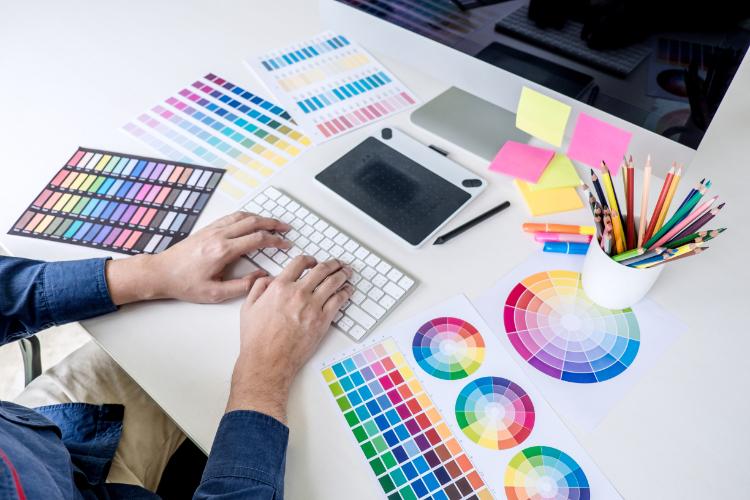
Think of a podcast room where vibrant murals breathe life into each corner.
A space where distinctive design elements tell a story.
A podcast set up to transform an ordinary recording room into a captivating creative space.
You get the gist.
Adding art and creativity to your podcast room adds a lot to the ambiance.
It also makes your recording space a visually stimulating environment.
This type of environment opens up the possibility of having different podcast episodes that feature dynamic visuals.
You could even collaborate with local artists, showcasing new art regularly.
You’ll keep your space fresh and exciting while supporting the creative community.
10. High-Tech and Futuristic Looks
If you’re into tech, why not have cutting-edge gadgets that transform your space into a futuristic hub?
Think holographic displays serving as a next-level touchpoint for hosts and guests.
These displays offer a visually striking way to present information or engage the audience.
Interactive touch screens are another advanced element that can add to your podcasting experience.
They allow real-time adjustments and on-the-fly content modifications – without disrupting the flow.
You could even add smart home technology to automate lighting, sound, and temperature.
All these elements ensure a seamless and controlled environment – just how you like it.
11. Nature-Inspired Settings
Integrating elements like plants (natural or artificial), water features, and nature sounds transform a dull space into a cozy, inviting environment.
Imagine recording your podcast surrounded by an indoor garden or a vertical plant wall.
Both of these add a lush, tranquil aesthetic and improve air quality.
Then, the soothing sounds of water features provide a calming background, contributing to a relaxed atmosphere.
Using these nature-inspired designs, your podcast studio will become a serene oasis.
And what’s better than that when recording your show?
12. Bookcase and Library Backgrounds
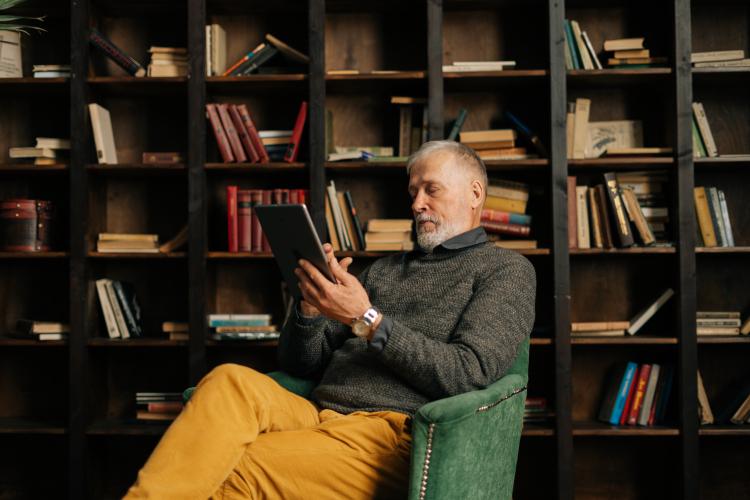
I highly think you should consider bookcases and libraries as podcast backdrops.
Not only do they add depth and character, but they also subtly indicate a foundation of knowledge and trustworthiness.
Also, organizing books and decorative items on these bookcases will make the setup more engaging.
You could, for instance, arrange books by color to create a visually appealing rainbow effect.
You could also group them by topic to reflect the themes of your podcast.
Using unique bookends and ambient lighting can highlight specific books, drawing attention to exciting titles or even personal favorites.
There’s so much you can do with bookcases as podcast backdrops.
Additionally, themed decorations like globes, vintage clocks, and framed art can enhance your bookcase background.
This setup ensures you don’t just have a storage solution.
Instead, you’ll have a dynamic and engaging space to record your podcasts.
13. Colorful and Vibrant Designs
The impact of vibrant colors on audience engagement cannot be overstated.
A well-chosen colorful background and bold furniture create an impressive environment.
Use an accent wall with a vibrant hue or incorporate a dynamic color scheme that changes with different segments.
These can both make the visual component of your podcast more compelling.
In this case, choosing and combining colors effectively is essential.
Pair complementary colors to keep the visuals engaging without overwhelming the audience.
By integrating colorful and vibrant designs, you make the space visually appealing and capitalize on the psychology of colors.
The result?
You maintain audience attention and build a more stimulating environment.
14. Soundproof and Acoustic Treatments
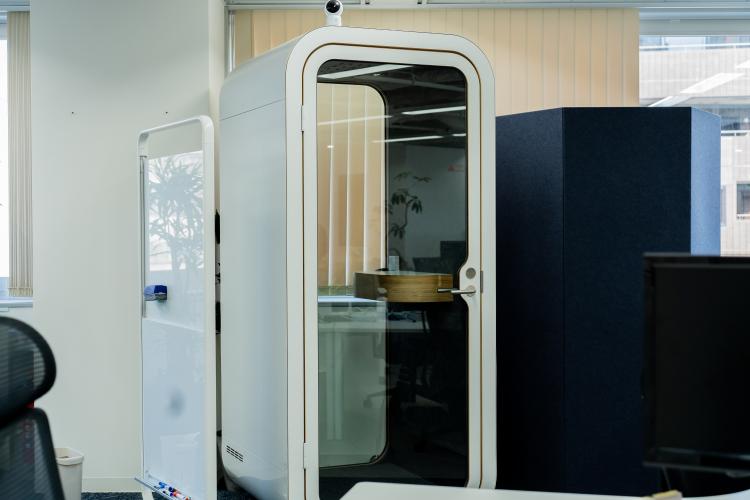
When it comes to podcast room ideas, you cannot overlook the importance of soundproofing and acoustics.
Strategically placed acoustic panels significantly reduce unwanted noise and echo.
They also create a clean sound profile.
Opt for decorative acoustic panels that match your décor if you’re after an aesthetically pleasing setup.
Sound-absorbing furniture and rugs can enhance the room’s acoustics, making every recording crisp and clear.
You can even install pre-built soundproof rooms in your home or office.
They are not the best-looking rooms, but they will get the job done if your show doesn’t involve video podcasts.
15. Multi-Functional and Flexible Spaces
Utilizing movable walls and modular furniture allows you to reconfigure your setup as required.
For example, you can turn your podcasting studio into a quiet corner for solo recordings or an open area for group discussions.
Creating zones within your studio for different activities ensures that each segment of your podcast process is optimized.
You can have a space for editing, recording, and brainstorming,
Multi-functional podcast setups often merge creativity with practicality.
They also make it simple to transition between tasks – without compromising on the quality of your production environment.
Creating a Great Recording Space
Want to set up the best podcast room from the start?
Here are the main considerations before making a final decision.
Acoustics and Soundproofing
You must first focus on acoustics and soundproofing to create a great recording space.
Good audio quality significantly impacts your podcast’s professionalism and listener engagement.
As such, it’s essential to prioritize in your setup.
Acoustic panels and heavy curtains are excellent choices.
They absorb excess noise and echoes, resulting in clearer sound.
Strategic furniture placement also plays a role in optimizing acoustics.
Placing soft furniture and avoiding bare walls can help reduce reverberation.
Items like bookshelves and rugs add aesthetic value.
They also enhance sound insulation, transforming a regular room into an acoustically treated space.
Microphone placement is another crucial factor.
Position your microphone off-axis to reduce plosives and capture your voice in natural, balanced tones.
These small adjustments can significantly improve the clarity and richness of your recordings.
This approach also sets the foundation for delivering professional-sounding podcasts.
Essential Equipment
The goal of setting up a podcast room? To ensure you can deliver clear and crisp audio quality.
Essential equipment forms the backbone of this setup.
As such, the first item on your list should be a high-quality microphone.
Dynamic microphones are particularly well-suited for podcasts because they are robust and less sensitive to background noise.
This makes them ideal for home studios or environments that are not fully soundproofed.
Consider the number of speakers that will be involved in your podcast.
If you’re hosting solo, a single microphone will suffice.
However, for multiple speakers, you’ll need additional equipment.
More microphones and possibly a mixer will help balance and blend audio levels seamlessly.
Pick-up patterns are another crucial aspect.
Unidirectional microphones are great for isolating individual voices.
On the other hand, omnidirectional microphones capture sound from all directions.
This feature might be helpful in group discussions but may introduce more background noise.
Monitoring audio quality as you record is critical.
The best way to do this is to use studio-grade headphones as the monitoring tool of choice.
These headphones accurately represent your podcast’s sound.
They allow you to catch and correct audio issues in real time.
While some podcasters might connect their microphones directly to their computers, there is a better way.
Adding a recording device ensures an additional layer of reliability and quality.
Finally, adding a mixer to your setup can be optional but highly beneficial.
You should consider this when working with multiple microphones.
By thoughtfully investing in and setting up essential equipment, you’ll be well on your way to producing a professional-sounding podcast.
Additional Considerations
Let’s discuss some final touches you can add to your podcast room.
One of these elements is lighting.
Natural light is always preferred, providing a well-rounded and appealing look.
However, if natural light isn’t available or reliable, diffused artificial light can be a great alternative.
LED panels are especially effective as they offer adjustable brightness and color temperatures, allowing you to create the perfect ambiance.
Another crucial factor is the background of your recording space.
It’s important to keep the background clutter-free to avoid distractions.
This also ensures that the focus remains on the content being delivered.
Comfort is also crucial when setting up your podcast room.
Investing in chairs with good back support is essential for maintaining proper posture during long recording sessions.
This ensures your comfort and contributes to the quality of your voice by allowing better breathing control.
Conclusion
Creating a great podcast studio might seem like it involves lots of steps.
And while this might be true, you only have to get it right once.
With the above podcast studio ideas, you can transform any space.
From cozy home setups to high-tech studios, there’s something for everyone.
Remember, a good studio looks great and helps your podcast sound better.
I encourage you to try different themes, play with lighting, and make the space your own.
Your listeners will notice the difference from the very first moment.
Further reading on AdamEnfroy.com: Ready to dive into the world of podcasting? Start with this comprehensive guide to launching your own podcast and get all the essential steps.
Once you’re set up, explore the latest podcast statistics for 2024 to understand the industry’s trends and growth.
